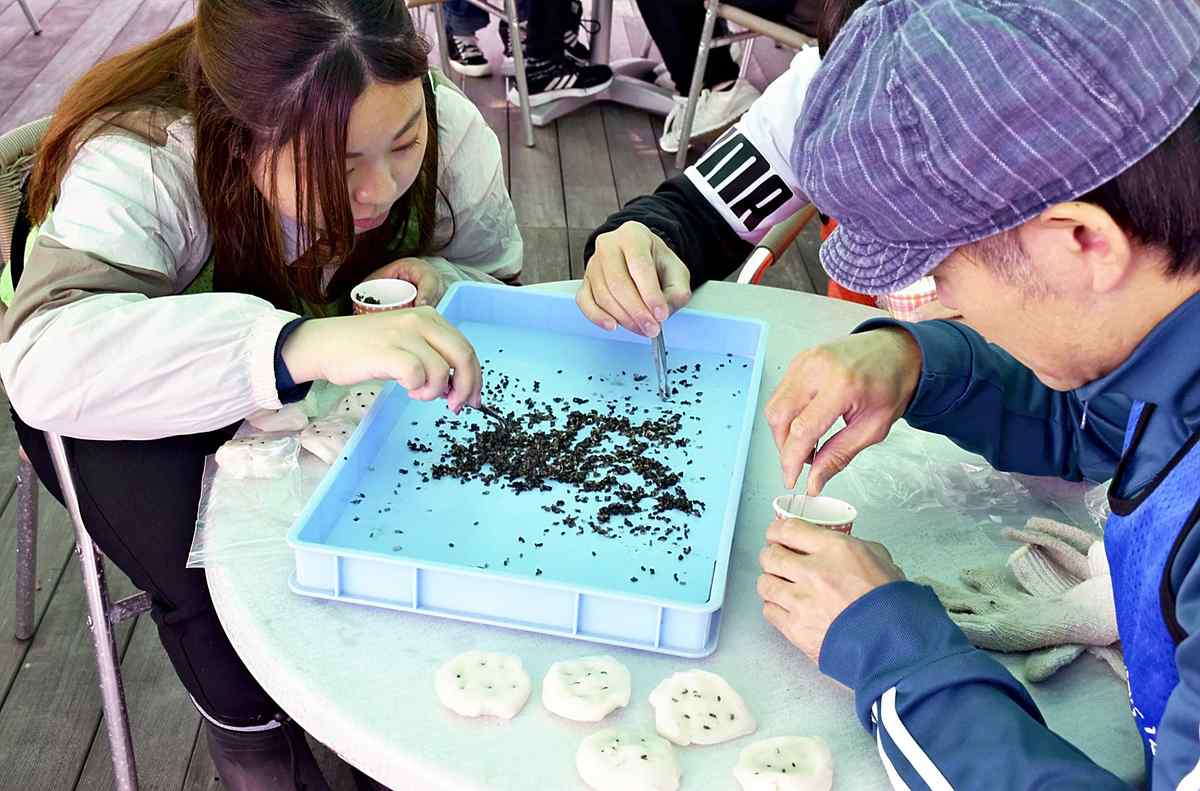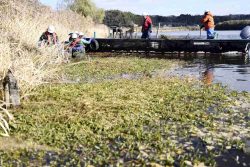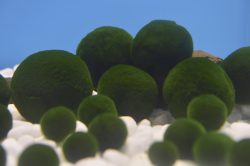
People, including volunteers, delicately place eelgrass seeds on slabs of agar gel, in Shiogama, Miyagi, on Nov. 9.
13:59 JST, December 26, 2024
SHIOGAMA, Miyagi (Jiji Press) — Efforts are spreading in Miyagi Prefecture to bring back seagrass beds damaged by the March 2011 huge earthquake and tsunami, driven by blue carbon hopes.
A participant in such a restoration project in the prefecture’s Matsushima Bay, known as one of the country’s three most scenic spots, said, “Eelgrass is a ‘cradle’ for sea life.”
“Although some blades of eelgrass may die as a result of rising sea temperatures due to global warming, I hope to do everything I can do now,” he added.
Other than serving as spawning grounds for fish and hiding spots for their offspring, seagrass and seaweed beds are capturing global attention as an ecosystem for blue carbon, or carbon dioxide absorbed by seaweed and seagrass, as the world tackles the climate change.
The March 2011 tsunami reduced the vegetation in Matsushima Bay to one-10th the levels before the disaster.
In February 2012, fishing boat operators and local residents teamed up to establish a group to restore eelgrass beds in the bay, prompted by worries that they would not be able to catch fish there without an improvement in the situation.
Since then, the group has been working with the central government and experts to bring back the seagrass beds.
Last month, the group hosted an event to plant eelgrass seeds in Shiogama. The event brought together around 50 people, including volunteers and fisheries school students.
Using tweezers, participants delicately placed 3-millimeter eelgrass seeds on slabs of agar gel. The slabs were then thrown into waters 2 meters deep.
“We’re thinking about the next generation, hoping that the activities will continue for a long time,” Shigeru Kuwahara, 71, head of the group, said, adding that the group has held special classes at Shiogama elementary schools to teach children the importance of restoring seagrass beds.
“We hope that children understand what we’re doing and will take over our activities,” Kuwahara said.
A major issue in regenerating seagrass beds is sea desertification mainly caused by rising water temperatures due to the global warming.
According to the Miyagi prefectural government, satellite image analysis showed that the area of seagrass and seaweed beds along the prefecture’s Pacific coast declined to around 1,100 hectares in fiscal 2019 from 2,050 hectares in fiscal 2015.
In fiscal 2021, the Miyagi government set up a council for blue carbon efforts, including experts and local fisheries operators, and began developing technology to better grasp the seagrass bed area and publicizing related efforts to prefectural residents.
This fiscal year, the prefectural government started asking for donations under a crowdfunding project using the “furusato nozei” hometown tax donation system, in order to aid organizations facing financial issues.
“We’ve received inquiries from companies wanting to work on blue carbon efforts as part of their corporate social responsibility,” a Miyagi government official said. “We hope to connect companies with organizations [working on such efforts] in the prefecture and continue giving support.”
Top Articles in Science & Nature
-

Japan Institute to Use Domestic Commercial Optical Lattice Clock to Set Japan Standard Time
-

Japan to Face Shortfall of 3.39 Million Workers in AI, Robotics in 2040; Clerical Workers Seen to Be in Surplus
-

Record 700 Startups to Gather at SusHi Tech Tokyo in April; Event Will Center on Themes Like Artificial Intelligence and Robotics
-

iPS Treatments Pass Key Milestone, but Broader Applications Far from Guaranteed
-

iPS Cell Products for Parkinson’s, Heart Disease OK’d for Commercialization by Japan Health Ministry Panel
JN ACCESS RANKING
-

Japan PM Takaichi’s Cabinet Resigns en Masse
-

Japan Institute to Use Domestic Commercial Optical Lattice Clock to Set Japan Standard Time
-

Israeli Ambassador to Japan Speaks about Japan’s Role in the Reconstruction of Gaza
-

Man Infected with Measles Reportedly Dined at Restaurant in Tokyo Station
-

Videos Plagiarized, Reposted with False Subtitles Claiming ‘Ryukyu Belongs to China’; Anti-China False Information Also Posted in Japan






















